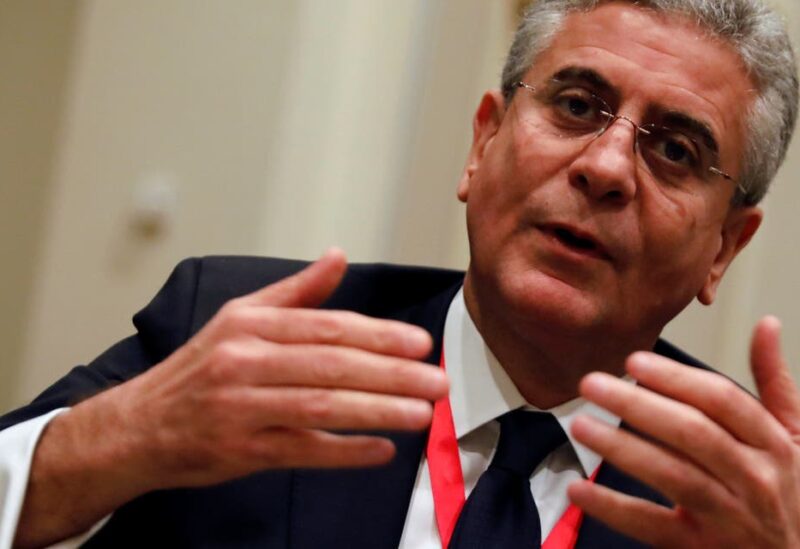
Ferid Belhaj, World Bank vice-president for the Middle East and North Africa, was one of the speakers addressing climate change at the Egypt — International Cooperation Forum (Egypt - ICF). (File photo: Reuters)
Global governments must unite in the post-COVID world to refocus on green goals and climate change strategies to ensure disadvantaged and vulnerable societies are not left behind, experts have said.
Speaking at the Egypt — International Cooperation Forum (Egypt – ICF), being held in Cairo this week to tackle the global post-COVID economy, Selwin Charles Hart, special adviser and assistant secretary-general for Climate Action Panelists, described the world as being on a “climate cliff” with the world being on the verge on not meeting the 1.5 degrees Celsius Paris Agreement.
However, he stressed that the aftermath of the COVID-19 pandemic provided a unique opportunity to refocus green efforts.
“We face this really great opportunity if we are able to address, in a comprehensive and coordinative manner, this dual crisis of climate change and COVID-19,” he said. “COVID-19 represents a once in a generation opportunity to do just this.”
Without action, sea levels will rise, water scarcity will increase and devastating weather catastrophes, including wildfires, floods and droughts – as seen across the world in 2021 – will become a more common occurrence, the forum heard.
Mr Hart urged countries to deliver on a $100billion pledge – the annual sum needed to tackle climate change, adding that the world “cannot give up hope” on delivering on the Paris Agreement,
Ferid Belhaj, Vice President for the Middle East and North Africa at the World Bank Group, described climate change as “an existential crisis for the Middle East and for Africa” saying urgent action is needed before it is too late.
“We need to move forward, we need to move fast, we need to move green, and we need to move now.”
Climate change, however, is not only is safeguarding the planet for future generations but presenting “huge opportunities” for job creation, he said.
Adding that he was encouraged by the plans and commitments taken by Egypt, Belhaj said climate change was an “immense business bonanza” for green growth that could create jobs, from scaling up climate-smart agriculture activities and decarbonizing heavy industry and the grid with renewable energy.
With the MEA region facing a “youth bulge” that will need the creation of 300 million jobs, creating employment in the green sector could be the answer.
Dr. Yasmine Fouad, Minister of Environment in Egypt, also said that the COVID-19 pandemic has placed increased strains on MEA countries, testing their social, economic, and environmental resilience, as well as further exacerbating pre-existing challenges of pollution, increased climate risks, water scarcity and migration.
She said climate change is “not an environmental challenge… climate challenge is a developmental challenge.”
“It hits hard all development processes,” she stressed. “It doesn’t differentiate between a rich, poor or developing country.”
She highlighted Africa as a case in point, that despite comparably low carbon emissions, will be of the hardest-hit nations affected by climate change.
Fouad urged countries to act collectively to create policies and said efforts addressing climate change should be made by the people and for the people.
Ian Bremmer, president and founder of the Eurasia Group and GZERO Media, said that the world needs to learn lessons from the COVID-19 outbreak, pointing out that less than two percent of Africa have been vaccinated against the virus.
As with the pandemic, poor nations such as Africa will bear the most severe brunt of climate change, he warned.
Dr. Zainab Shamsuna Ahmed, minister of finance in Nigeria, also addressed the forum saying the “world is failing to deliver on the promises of the Paris Agreement.”
However, Harry Boyd-Carpenter, managing director for green economy and climate action at European Bank for Reconstruction and Development (EBRD), said “time has not run out yet” and urged global leaders to send “strong signals” through policy prescriptions such as setting a net zero target and to set a “carbon price” on emissions.